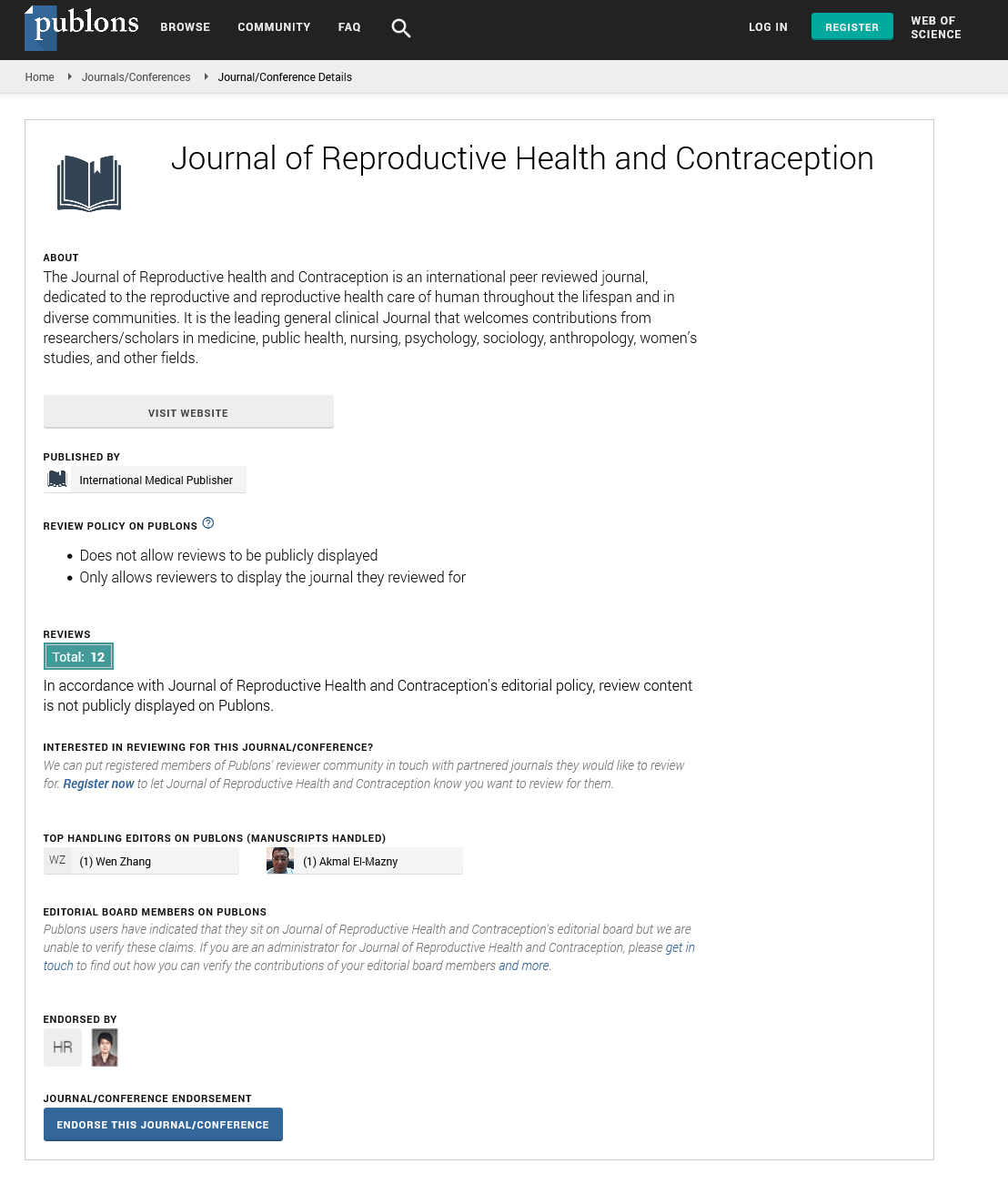ISSN : 2471-9749
Journal of Reproductive Health and Contraception
Patient safety culture in the clinical practice of nurse-midwives
International Congress on Midwifery and Maternal Health
October 13, 2022 | Webinar
Claudia PC Bras
ESEnfC, Portugal
ScientificTracks Abstracts: J Contracept Stud
Abstract
Statement of the Problem: In maternity hospitals, the safety can be influenced by organizational culture, teamwork, communication and no punitive responses1. In recent years, we have witnessed changes in the practices of nurse-midwives in the search for safe conditions in their clinical practice. However, we are not yet at the desired level of safety culture when the staffing of nurse-midwives cannot meet the needs for specialized care3, when the number of professionals with patient safety training is still low, and when there is an urgent need for an increase in the culture and transparency of patient safety incident reporting4. Assess the safety culture and monitors the evolution of the safety culture can bring about change and improve the quality of health care5. This study aimed to identify the dimensions determining the safety culture in maternal and obstetric health nursing. Methodology: An observational, analytical, cross-sectional study was conducted with a nonprobability convenience sample of 70 nurse-midwives from a hospital and university centre in the central region of Portugal, who completed the Hospital Survey on Patient Safety Culture. The methodology proposed in the User’s Guide developed by the Agency for Healthcare Research and Quality was used for data analysis. Findings: The dimension “Teamwork within units” scored 78.2%. The following dimensions can also reinforce the safety culture: “Supervisor/manager expectations”, “Feedback and communication about error”, and “Communication openness”. The problematic areas were “Staffing”, “Teamwork across units”, “Management support for patient safety”, “No punitive response to error”, “Frequency of events reported”, and “Overall perceptions of patient safety”, with percentages below 50%. Conclusion & Significance: The dimension “Teamwork within units” was considered a strong dimension of the safety culture. Assessing the safety culture allows identifying weaknesses and contributes to planning interventions that reduce the incidence of errors and promote voluntary and no punitive reporting to improve the safety of maternal and obstetric health care.
Biography
Claudia Bras is a nurse – midwife, with a master degree in Maternal and Obstetric Health Nursing. Nowadays works as an Adjunct Professor at Higher School of Nursing of Coimbra (ESEnfC). Is a researcher at the Research Unit in Nursing Health Sciences at ESEnfC. Participates in the Childbirth Preparation and Parenting project with pregnant couples. Is a breastfeeding Counsellor. PhD student in Nursing Sciences with areas of interest: Maternal and Obstetrics Health, Sexual and Reproductive Health, Communication, Patient Safety.
Google Scholar citation report
Citations : 201
Journal of Reproductive Health and Contraception received 201 citations as per Google Scholar report
Journal of Reproductive Health and Contraception peer review process verified at publons
Abstracted/Indexed in
- Google Scholar
- China National Knowledge Infrastructure (CNKI)
- WorldCat
- Publons
Open Access Journals
- Aquaculture & Veterinary Science
- Chemistry & Chemical Sciences
- Clinical Sciences
- Engineering
- General Science
- Genetics & Molecular Biology
- Health Care & Nursing
- Immunology & Microbiology
- Materials Science
- Mathematics & Physics
- Medical Sciences
- Neurology & Psychiatry
- Oncology & Cancer Science
- Pharmaceutical Sciences
